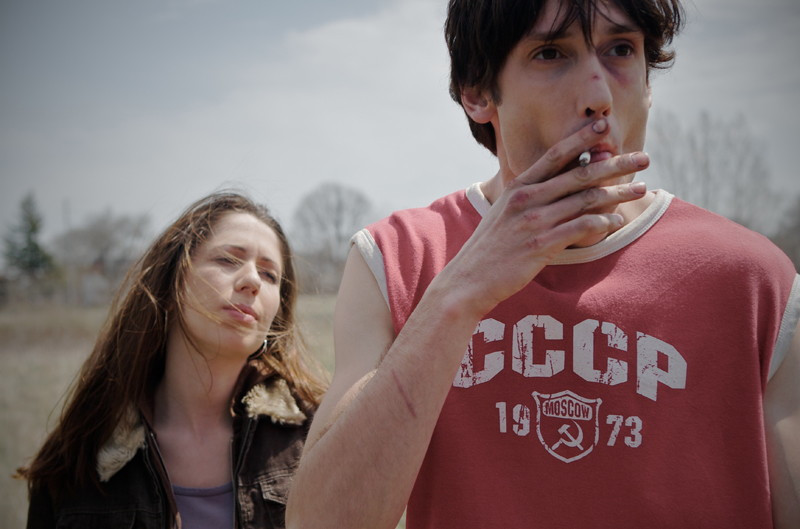Melodrama and strange plot twists
Powerfully acted, gorgeous-looking film self-destructs in the end
Any actor given the task of portraying a character with a debilitating disease such as Tourette’s syndrome has to walk a fine line between realism and caricature.
Ryan Ward, the Portage La Prairie-born writer/director/star of Son of the Sunshine, walks that line well, managing to pull off a surprisingly nuanced and sensitive depiction.
Ward plays Sonny Johnns who, after struggling with Tourette’s syndrome for 24 years, undergoes an experimental procedure that manages to free him of the tics and tremors that have been a constant part of his life.
His newfound cure, however, hardly reduces the amount of tribulations in his life.
Sonny’s mother (JoAnn Nordstrom) is a heroin addict; her boyfriend/dealer is abusive; his sister (Shantelle Canzanese) has left home because of problems with their mother; and Sonny’s first attempt at love lands him in the arms of a bipolar drug addict, Arielle (Rebecca McMahon), who appears to be just a younger version of his mother.
The story to this point is slightly melodramatic, but the grittiness of the presentation makes for a visceral viewing experience.
Add in some wonderfully done, Terrence Malick-style expressionistic passages, and the film seems to be heading in the satisfying direction of many painful, yet beautiful independent films.
Then the third act begins and things go horribly wrong.
It’s hard to say too much about what follows without spoiling the ending, although a spoiled ending hardly seems to be a concern for the filmmakers in question.
Essentially what began as a hyper-realist melodrama degrades into an episode of Degrassi Junior High with a twist so overwrought that it reaches the level of self-destruction rarely seen outside of an attempt by Spielberg to make a fourth Indiana Jones movie.
In fact, the strange twist begs the question, “Just how many comic book-obsessed teenagers were in the focus group that is responsible for this ending?”
To his credit, Ward is attempting something quite difficult as he works to channel the tradition of magic realism, a trope of directors like Ingmar Bergman.
However, the line between magic realism and silliness is even finer than the one Ward has been navigating in his performance.
It really is a shame that an otherwise fascinating film has been marred in the final reel.
That being said, the acting is powerful, the direction is strong, the photography is gorgeous and at its best moments, Ward’s film is a compelling character study of life on the margins of society.
Published in Volume 65, Number 27 of The Uniter (June 29, 2011)







